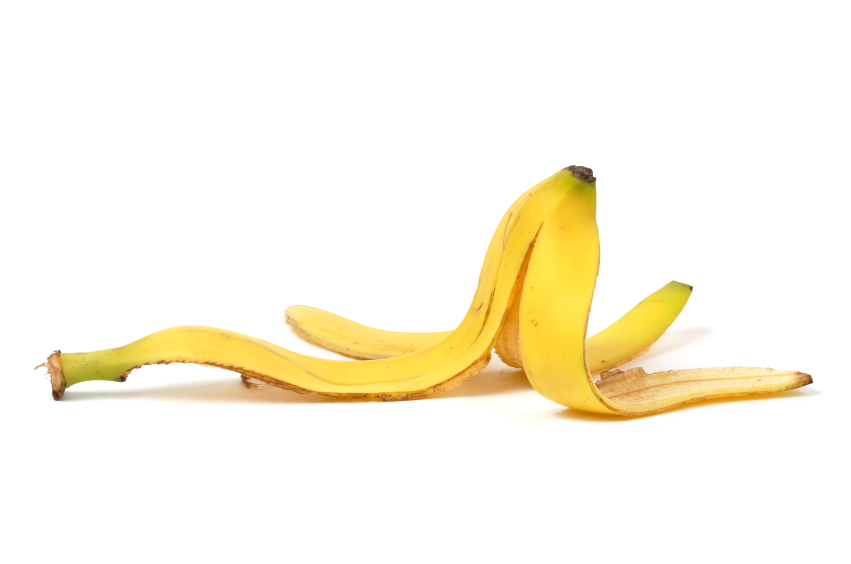You may be eating all the right foods to add years to your life… But you may be throwing away some of the best parts.
Outer-layers, seeds, rinds, stems… There’s some serious nutrition hiding in the parts of your food that usually end up in the trash. Here are five discarded food parts that you should be eating.
1. Banana Peel: You probably toss them in the trash without a second thought. But that’s a mistake. Banana peels are high in the fiber that helps fight off heart disease. You’ll also get B-vitamins and polyphenols. But its most surprising benefit is that it may boost your mood. Banana peels are high in tryptophan. It’s an amino acid that converts to serotonin—the feel-good chemical—in your brain. Eating two banana peels a day can boost your serotonin levels 15%.1
If you’re going to eat banana peels, make sure they’re organic. But if you just can’t get used to eating them raw, you can always add them to a smoothie. If you’re feeling extra adventurous, you can make homemade banana peel tea.
2. Carrot Greens: It’s not uncommon to see a horse devour a carrot whole. And they have the right idea. Carrot greens are rich in vitamins A, B6, C, and K.2 They’re also a good source of niacin, which can help you fight colorectal cancer. The manganese in carrot greens will also help you keep strong bones and relieve arthritis pain.
You can add them to salads or use as a garnish in your main course. Roasting your carrots with the stem intact will give you some of the nutrition from the greens as well. If fresh carrot juice is your thing, try keeping the greens on next time you make it. It’ll give you a totally different flavor and a lot of extra nutrition.
3. Orange Peel: These bitter peels can lower your cholesterol better than prescription drugs. One study found that the polymethoxylated flavones (PMFs) in orange peels lower LDL cholesterol by 40%.3 That’s impressive enough on its own. But d-limonene, another compound in orange peel, can cut cancer risk by 30%. Eating it with black tea helps slash your cancer risk by over 70%.
You won’t want to eat a raw orange peel… But adding organic zest to a salad or smoothie will give your food flavor and cancer-fighting power. If you’d prefer to supplement, you can find natural d-limonene and bitter orange extract pills online.
4. Beet Greens: Their red roots are a great way to lower your blood pressure. You may already be roasting or juicing them a few times a week. But their leafy greens are just as valuable. Beet greens are full of calcium and iron.4 Their high-fiber content helps protect against a stroke. Beet greens are also a great source of vitamin K, which can cut your diabetes risk in half.
There isn’t a quality supplement source for beet greens. Your best bet is to get the real thing. Gently steam and drain them like you would any other leafy green vegetable. Their texture and taste is similar to kale. But you’ll also get a hint of beet flavor in each bite. Or if you’re already juicing the roots, just throw the greens in too.
5. Watermelon Rind: Like the flesh, the juicy white and green rinds of watermelon contain citrulline. It helps produce the amino acid arginine. The result is relaxed blood vessels, optimized erectile function, and a healthier heart.5 But watermelon rind has 60% more citrulline than the flesh.
A healthier heart and happier sex life will help you learn to like the taste of watermelon rind. But if watermelons aren’t in season, you can get citrulline as a supplement.
They may not be glamorous…eating them may be taboo…but when you throw away these food parts, you’re putting nutrients in the garbage instead of your body. Not to mention, you’ll be getting your full money’s worth. Give them a chance. They may even become a regular part of your diet.
Like this Article? Forward this article here or Share on Facebook.
References:
1http://www.foods4betterhealth.com/benefits-of-banana-peel-5919
2http://www.huffingtonpost.com/2013/11/17/leafy-greens-cookbook-recipes_n_4283567.html
3http://www.sciencedaily.com/releases/2004/05/040512041238.htm
4http://nutritiondata.self.com/facts/vegetables-and-vegetable-products/2353/2#ixzz2uXtwIcF
5http://www.ars.usda.gov/is/pr/2003/030221.htmhttp://www.ars.usda.gov/is/pr/2003/030221.htm


